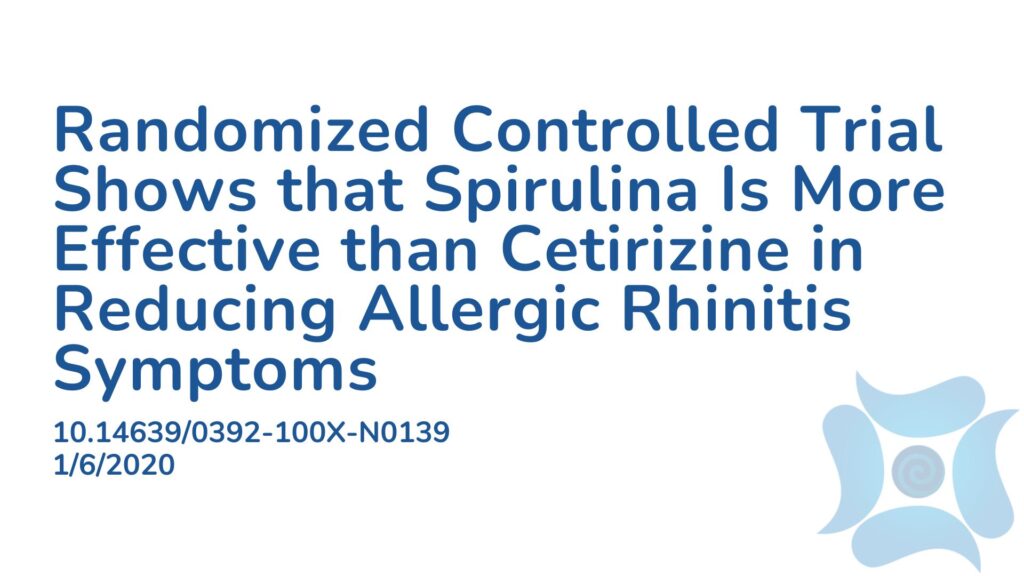Summary:
The purpose of this randomized controlled clinical trial was to compare common hay fever and anti-histamine medication such as cetirizine with spirulina supplementation for the treatment of allergic rhinitis (AR). The study included 53 patients who suffer from AR and were split into two groups; one which was treated with spirulina and one treated with cetirizine. The participants symptoms were assessed during the course of the study via a questionnaire as well as inflammatory mediators. There was no significant difference between the two groups in clinical presentations before the intervention and differences in ages and gender were not significant to the study or results. The results showed that the spirulina group experienced more significant changes than the cetirizine group, such as improved smell, nasal blockages and rhinorrhoea. The spirulina group also experienced greater improvements to sleep, overall quality of life and inflammatory mediators. In conclusion, spirulina showed to be more effective than cetirizine in improving symptoms for patients with AR.
Abstract:
The aim of this study is to compare the efficacy provided by spirulina platensis and cetirizine for treatment of allergic rhinitis (AR). A randomised controlled clinical trial was performed on 53 patients with AR divided into experimental and control groups in an accredited tertiary academic centre. Subjects in the experimental group were treated with spirulina (2 g per day) and the control group was treated with cetirizine (10 mg per day) for 2 months. Symptoms were assessed based on a standard questionnaire and inflammatory mediators, and the results were compared before and after treatment. There were 23 men and 30 women with a mean age of 26.75 years (SD 9.26; range 8-58). The differences between the two groups in terms of age and gender were not significant. There was no significant difference between the two groups in clinical presentations before the intervention (P > 0.05). The prevalence of rhinorrhoea (P = 0.021), nasal obstruction (P = 0.039) and smell reduction (P = 0.030) in the experimental group improved significantly compared to those seen in the control group after intervention. Sleep condition, daily working and social activity improved significantly in the experimental group (P < 0.05). Furthermore, there was no significant difference between groups regarding inflammatory mediators before treatment; however, after 1 month of treatment, the levels of interleukin (IL)-1α (P < 0.001), IL-1β (P < 0.001) and IL-4 (P = 0.008) were all significantly lower, and IL-10 levels were significantly higher in the experimental group, compared to those in the control group. In conclusion, spirulina is more effective than cetirizine in improving cardinal symptoms of AR patients. Furthermore, spirulina can be considered as an alternative treatment in patients with AR
Article Publication Date: 1/6/2020
DOI: 10.14639/0392-100X-N0139



